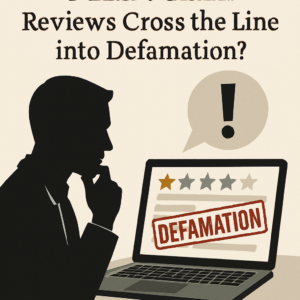Business Services
That Keep You Moving Forward.
Tax credits & incentives, business formation, reinstatement,
sales tax, and more—expert business guidance.
Starting & Maintaining Your Business
Business Solutions Articles
- When Does Your Shareholders’ Agreement Expire? The 10-Year Rule in TexasSmall business owners who form a corporation often create shareholders’ agreements to govern their relationships, protect minority investors, and establish protocols for share transfers. These agreements are particularly common in family businesses or closely-held corporations with just a few shareholders. But what happens when these agreements don’t specify how long they remain in effect? In Texas, a little-known statutory provision can cause shareholders’ agreements to automatically expire after a decade. This “10-year rule” can create significant complications when shareholders attempt to enforce what they believe are still-valid agreements. This typically only applies to agreements entered into prior to September of… Continue reading When Does Your Shareholders’ Agreement Expire? The 10-Year Rule in Texas
- Commercial Lease Terms for Recovering Attorney’s FeesCommercial landlords and tenants routinely negotiate detailed lease agreements with provisions designed to protect their interests in case of disputes. These agreements are intended to help avoid litigation. But when litigation arises and business owners have to hire attorneys, they usually want to know who pays the attorney’s fees? While Texas generally follows the “American Rule” where each party bears their own legal costs, commercial leases frequently include fee-shifting provisions that award attorney’s fees to the “prevailing party” in litigation. But what happens when a party “prevails” in a lawsuit but doesn’t recover any monetary damages? Are they a prevailing… Continue reading Commercial Lease Terms for Recovering Attorney’s Fees
- When Do Online Business Reviews Cross the Line into Defamation?Business owners today operate in a world where online reviews can significantly impact their reputation and bottom line. A single negative review can reach thousands of potential customers within hours. But when does a negative review cross the line from protected consumer speech into actionable defamation? What specific statements in a review might expose customers to legal liability? These questions matter for businesses that rely on their professional reputation and technical expertise. A recent Texas case, Wang v. Guo, No. 03-23-00244-CV (Tex. App.—Austin Mar. 28, 2025), gives us a chance to examine the distinction between protected opinion and potentially defamatory… Continue reading When Do Online Business Reviews Cross the Line into Defamation?
- When Can Courts Declare Someone a Vexatious Litigant? Texas Law Sets the BarHave you ever dealt with someone who seems to file lawsuits as a hobby? Perhaps you’ve heard stories about individuals who repeatedly sue businesses despite consistently losing their cases. For businesses facing such situations, defending against multiple meritless lawsuits can be financially draining and time-consuming. Fortunately, Texas law provides a mechanism to address this problem through Chapter 11 of the Texas Civil Practice and Remedies Code, which allows courts to declare certain individuals as “vexatious litigants.” But what exactly makes someone a vexatious litigant? How high is the bar to receive this designation, and what protections does it provide to… Continue reading When Can Courts Declare Someone a Vexatious Litigant? Texas Law Sets the Bar
- Choosing Between a Corporation and an LLC for Your BusinessStarting a business is a big step, and choosing the right business structure is a critical component of that process. Deciding between a corporation and a limited liability company (LLC) can be a difficult task, as both have their own unique advantages and disadvantages. In this article, we’ll explore the key differences between corporations and LLCs and help you determine which one is right for your business. Advantages and Disadvantages of a Corporation A corporation is a separate legal entity from its owners, which provides liability protection for shareholders. This means that shareholders are only liable for the amount they… Continue reading Choosing Between a Corporation and an LLC for Your Business
Start the Conversation
Have questions? Contact us to see how we can help.










